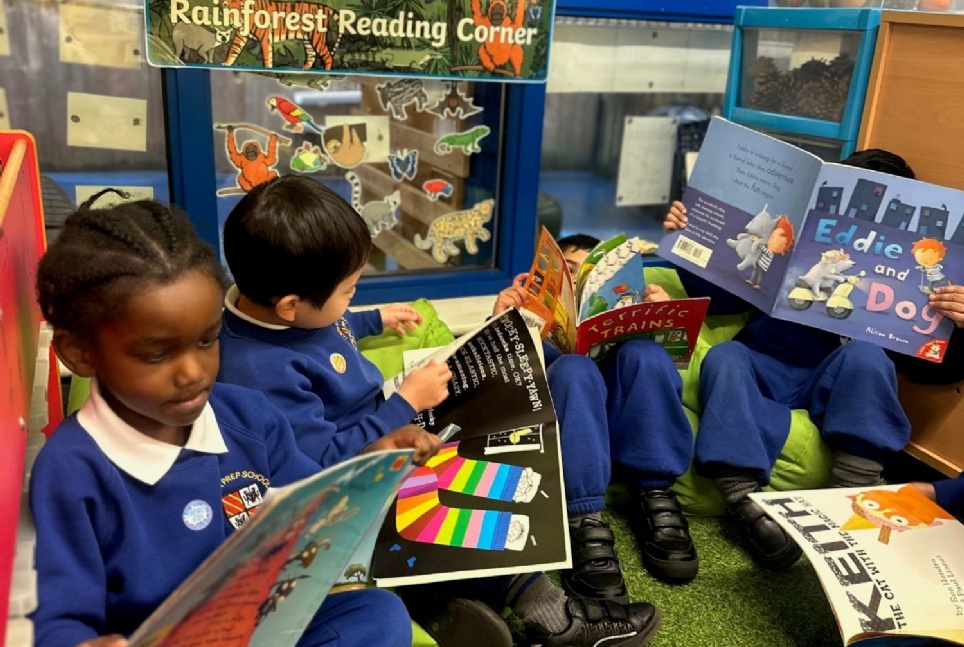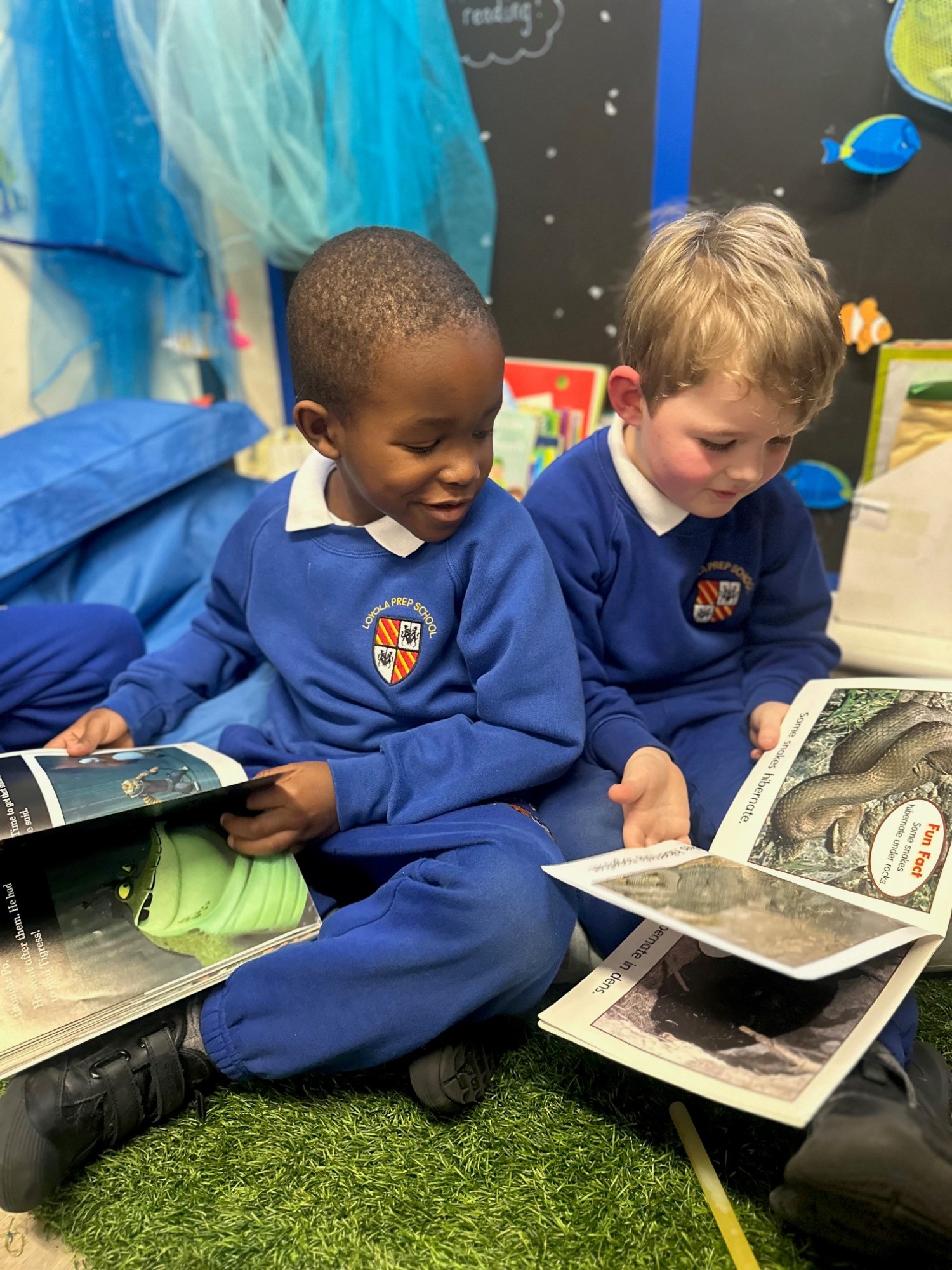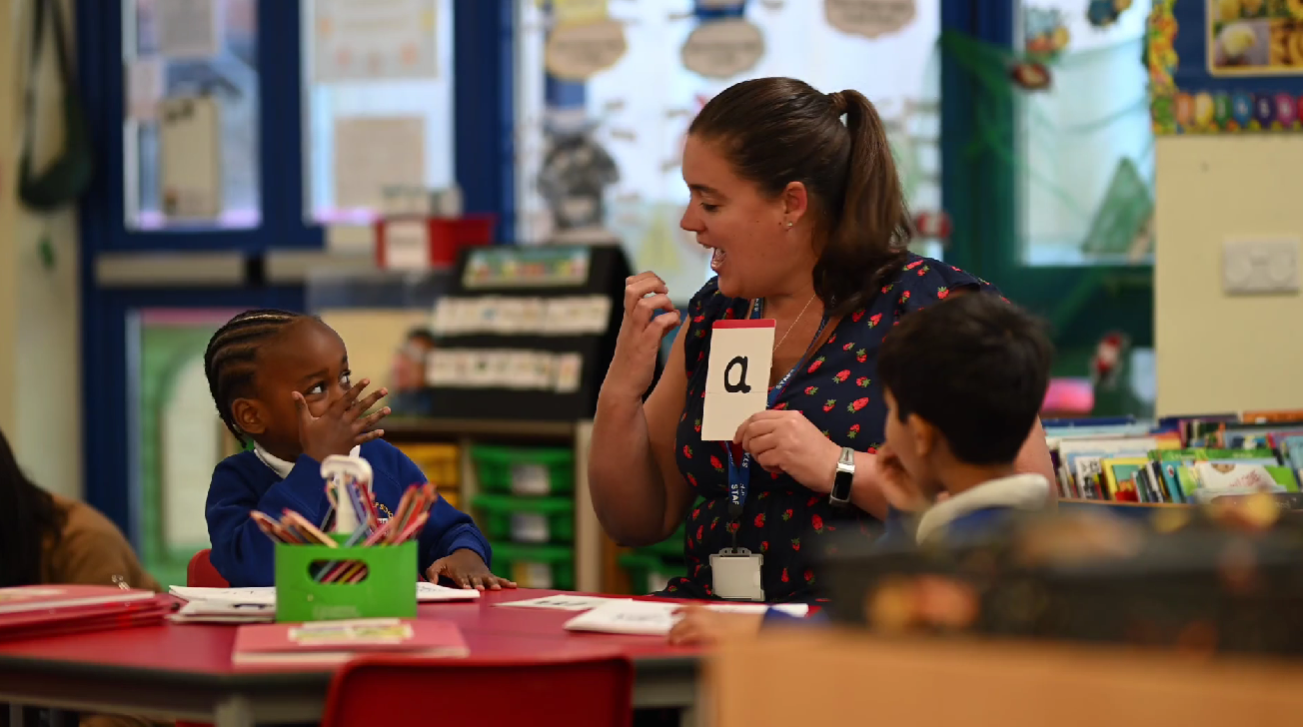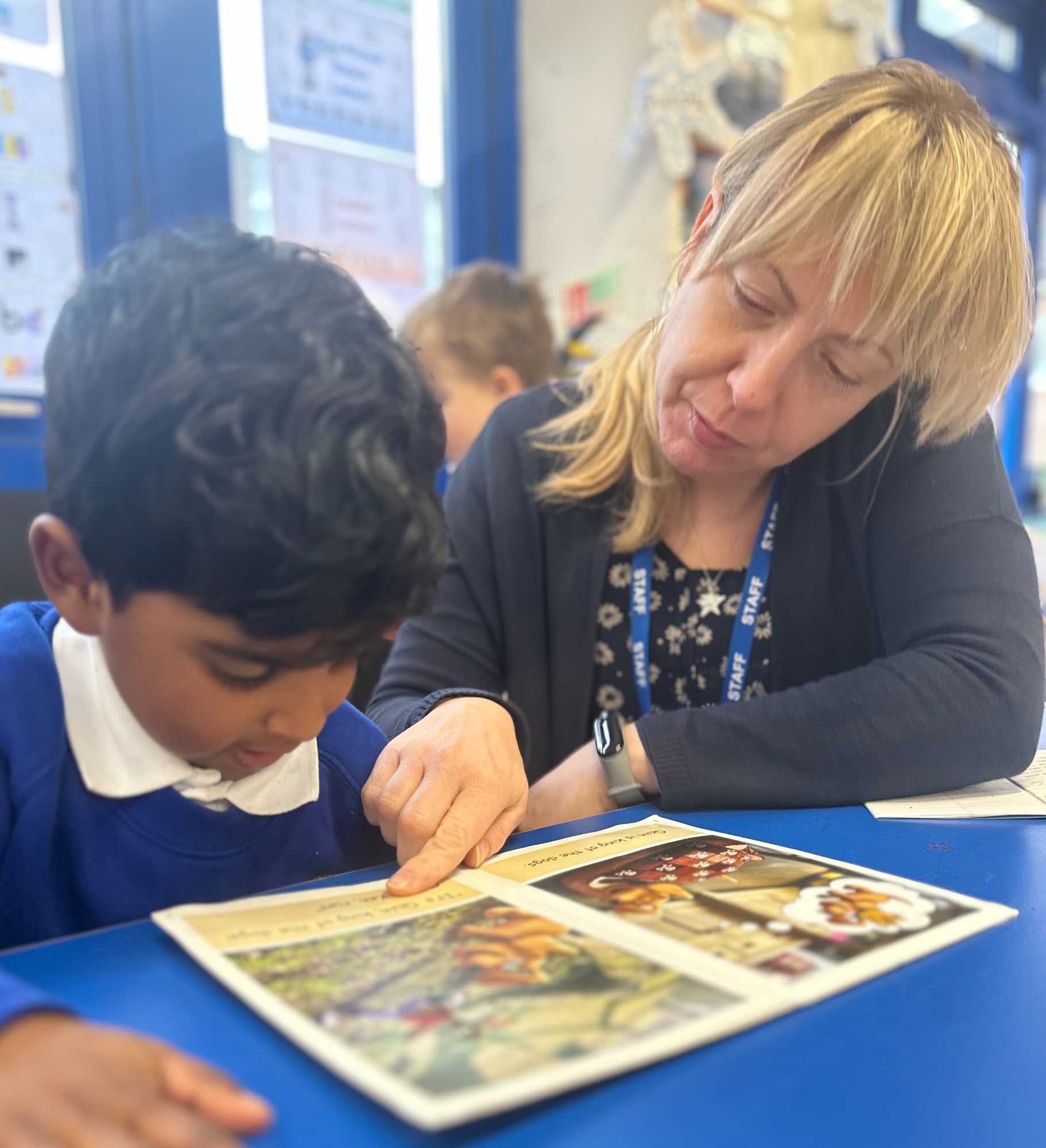
Why Reading Matters in the Early Years

In the early years of education, reading lays the groundwork for a lifelong love of learning. In her insightful article, Mrs. Sarah Fisher, our EYFS lead and reception teacher, emphasises the importance of reading in the Early Years Foundation Stage while addressing the challenge of engaging boys in this vital activity. Mrs Fisher shares practical strategies for parents and educators to create a reading-friendly environment that sparks curiosity and enthusiasm in young boys. Join us as we explore her expert advice on fostering a passion for reading that endures throughout their lives.
 In our Early Years team, we understand that building early literacy skills is crucial for a child’s development, but sparking a genuine love for reading is equally important. Boys, in particular, often benefit from strategies that make reading fun, engaging, and interactive as they are less inclined to pick up a book compared to their female peers.
In our Early Years team, we understand that building early literacy skills is crucial for a child’s development, but sparking a genuine love for reading is equally important. Boys, in particular, often benefit from strategies that make reading fun, engaging, and interactive as they are less inclined to pick up a book compared to their female peers.
The National Literacy Trust has noted that girls continue to outpace boys in their enthusiasm for reading for pleasure and their latest study also found that nearly twice as many boys as girls said they do not enjoy reading at all, by 13% to 7%.
This gap can stem from societal stereotypes, limited access to books that resonate with their interests, and the misconception that reading is a "quiet" activity rather than an adventure. But by addressing these barriers and nurturing a passion for books in their early years, we can set the stage for future academic success and a lifelong love of learning.
Why Reading Matters in the Early Years
 At Reception age, reading goes beyond letters and sounds. It’s about fostering curiosity, building vocabulary, and developing imagination. Books help children explore new ideas, learn about the world, and develop critical social and emotional skills. For boys, creating positive early experiences with reading can make all the difference in shaping their attitudes toward learning.
At Reception age, reading goes beyond letters and sounds. It’s about fostering curiosity, building vocabulary, and developing imagination. Books help children explore new ideas, learn about the world, and develop critical social and emotional skills. For boys, creating positive early experiences with reading can make all the difference in shaping their attitudes toward learning.
How you can help at home:
- Choose Books That Excite Them- Reception-aged boys often gravitate toward books that reflect their interests. Picture books with vehicles, dinosaurs, animals, or superheroes can capture their attention. Rhyming texts, interactive books with flaps or textures, and stories with humour also resonate well with young boys.
- Incorporate Movement and Play- Many boys in this age group are naturally active, and reading doesn’t have to be a sit-still activity. Acting out stories, using puppets, or creating simple crafts inspired by a book can make the experience dynamic and fun.
- Role Models- Boys at this age often thrive on connection and interaction and interestingly, the best role models for boys seem to be dads, sports coaches and athletes, men the boys aspire to be. If they experience these men reading and sharing their love of books (any kind of books) then reading can be seen as a positive bonding experience.
- Reading together -Whether it’s with a teacher, parent, or older sibling—make the activity more engaging. Encourage discussions about the story, let them predict what happens next, or ask them to point out things they notice in the illustrations.
- Create a Reading-Rich Environment- Displaying books at their eye level, setting up cosy reading corners, and making books accessible in all parts of the home encourage boys to explore them independently. Rotating the selection of books keeps things fresh and exciting.
- Celebrate- Positive reinforcement is key. Celebrate their attempts to sound out words, recognise letters, or retell parts of a story. Simple praise like “You’re such a great storyteller!” can boost their confidence and motivation.
The Impact of Early Reading on Boys’ Development
Encouraging boys to read in Reception has long-term benefits:
- Language Development: Early exposure to books enhances vocabulary, comprehension, and communication skills.
- Social-Emotional Growth: Stories teach boys to empathise with characters, understand emotions, and navigate social situations.
- Academic Readiness: Early reading habits prepare boys for the structured learning environment of Year 1 and beyond.
- Imagination and Creativity: Books help boys explore their world and dream beyond their immediate surroundings.
Final Thoughts
The Kindergarten and Reception years are a time of discovery and growth. By fostering a love for reading in boys at this stage, we can help them build confidence, curiosity, and a sense of wonder that will carry them through their educational journey. With the right books, interactive experiences, and plenty of encouragement, we can show young boys that reading is not only important but also a whole lot of fun!
Written by Mrs S Fisher, EYFS Lead & Reception teacher
January 2025


